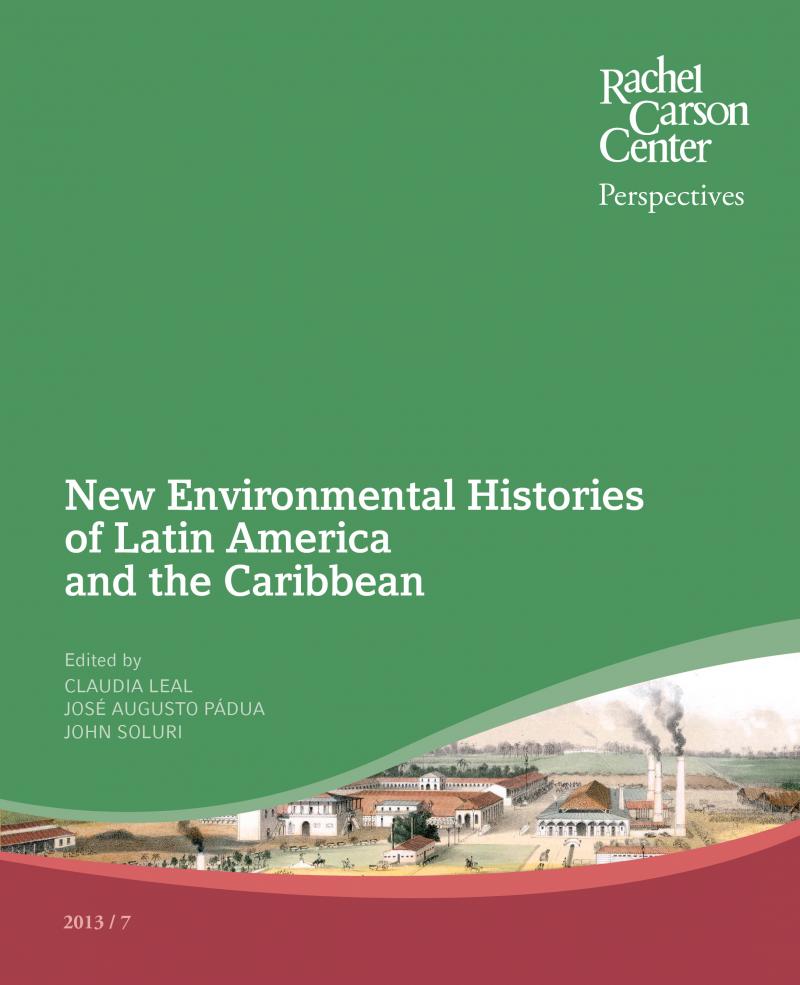About this issue
This collection brings together leading scholars on the environments of Latin America and the Caribbean to give us new and alternative narratives of the postcolonial history of the continent. The landscapes of Latin America are among the most diverse in the world and were seen as a cornucopia when they were first plundered by colonial adventurers—these essays look at the manifold legacies of abundance and extraction, telling stories of complex interactions between people, governments, and their environments, and providing new angles from which to view established narratives.
This volume is also available in Spanish and Portuguese.
How to cite: Leal, Claudia, José Augusto Pádua, and John Soluri (eds.), “New Environmental Histories of Latin America and the Caribbean,” RCC Perspectives 2013, no. 7. doi.org/10.5282/rcc/5921.

Content
- Introduction by John Soluri, José Augusto Pádua, Claudia Leal
Histories of Countries and Regions
- Mexico’s Environmental Revolutions by Chris Boyer and Micheline Cariño
- The Greater Caribbean: From Plantations to Tourism by Reinaldo Funes Monzote
- The Tropical Andes: Where Multiple Visions of Nature Co-exist by Nicolás Cuvi
- Nature and Territory in the Making of Brazil by José Augusto Pádua
- The La Plata Basin: Rivers, Plains, and Societies in the Southern Cone by Adrián Zarrilli
Transverse Histories
- Forest Frontiers by Claudia Leal
- Urban Nature in Latin America: Diverse Cities and Shared Narratives by Lise Sedrez
- Campesinos and the Hidden History of Biodiversity by John Soluri
- Hoofprints: Ranching and Landscape Transformation by Shawn Van Ausdal and Bob Wilcox
- Extracting Histories: Mining, Workers, and Environment by Myrna Santiago
- Prodigality and Sustainability: The Natural Sciences and the Environment by Stuart McCook


